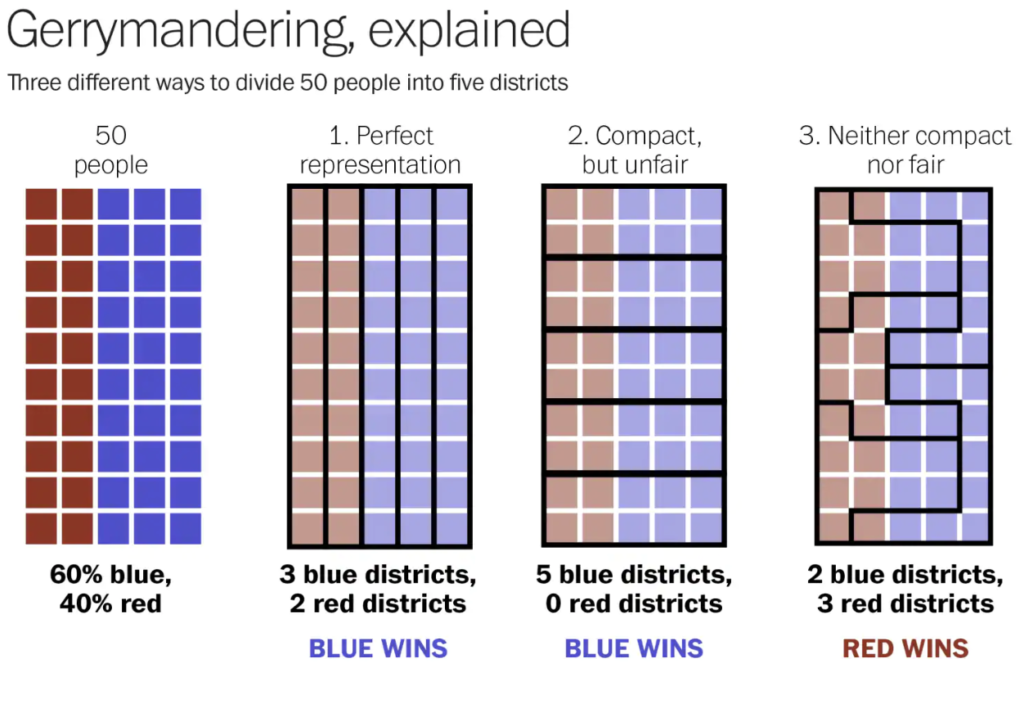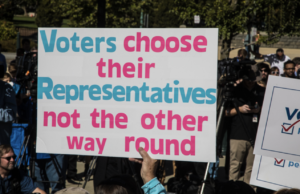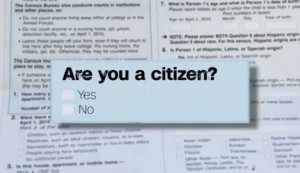On Thursday, a divided Supreme Court ruled on gerrymandering and census citizenship question.
On the last day of its term, the Supreme Court of the United States (SCOTUS) has released decisions in a couple of heavy watched cases. First on Gerrymandering, SCOTUS ruled that federal courts may not intervene to block partisan election maps drawn by state lawmakers. Second, on the Census, the Court blocked a citizenship question from being added to the 2020 census for now. Here’s what you need to know about SCOTUS on Gerrymandering and Census question.
So what happened ?

On Partisan Gerrymandering
"We conclude that partisan gerrymandering claims present political questions beyond the reach of the federal courts,” wrote Chief Justice John Roberts.
But first, what is partisan gerrymandering?
It involves manipulating the size and shape of electoral districts in order to favor one political party over the other. For example, someone would draw the district lines in a way to concentrate opposition party voters in one district in order to diminish their influence. Basically, it is grouping opposition voters into a district that the other party control – that way it is very difficult for opponents to win elections there.

What is the decision?
In a 5-4 ruling, the Court found that it is up to the states to address the issue of partisan gerrymandering, not federal judges. Chief Justice John Roberts explained that it would be “an unprecedented expansion of judicial power” if federal judges were allowed to block partisan gerrymandering.
In her dissent, Justice Elena Kagan wrote that the decision was “tragically wrong” and that it “would have disastrous consequences for American democracy.” Especially, Kagan noted: “Of all times to abandon the Court’s duty to declare the law, this was not the one. The practices challenged in these cases imperil our system of government. Part of the Court’s role in that system is to defend its foundations. None is more important than free and fair elections. With respect but deep sadness, I dissent.” You can read the full dissent here.
What consequences?
Nothing will change and partisan gerrymandering will remain unchecked for now. What is really means though, is that America will be more fragmented, primary elections will become more important than general elections and the decision will leave the door open to the possibility of some extreme political games. Ultimately, the decision comes at a cost of public confidence for SCOTUS.

On the Census citizenship question
On the Census citizenship question, the US Supreme Court blocked the question from the 2020 census, essentially because of the government’s explanation for why it had been added in the first place.
What is the issue with the citizenship question?

It all started with the government’s proposal to add a citizenship question to the 2020 census, which will ask all respondents to declare whether they are American or not. A first time since 1950.
The main concern with the question is that it would likely discourage million of immigrants from participating in this mandatory survey.
Another concerns is about how seats in Congress are allocated. The new population counts from the 2020 census will determine how many seats each state gets in the House of Representatives, and how many Electoral College votes each state gets.
Back to gerrymandering, the information collected could help drawing districts based on how many citizens lived in each state, rather than how many people.
What does the Court say?
Again, Chief Justice John Roberts Jr. wrote for the majority and explained that the explanation offered by the government for adding the question “appears to have been contrived”. Leaving the door open for an adequate answer, Chief Roberts added that the Executive Branch must offer genuine justifications for important decisions.
What's next?
It is unclear. The decision seems to leave the door open and the government already announced that they might delay the census altogether. This suggest that the government will likely provide more justification for the citizenship question. What is certain though, is that the citizenship question issue will continue to be spark the political debate as the 2020 presidential race gets closer.
The citizenship question issue is likely to continue to be a political lightning rod as the 2020 presidential race progresses.
For more about SCOTUS on Gerrymandering and Census question, make sure to visit the Court’s Blog!
For more about the law, make sure to follow our Journal and to contact us for any inquiries.




